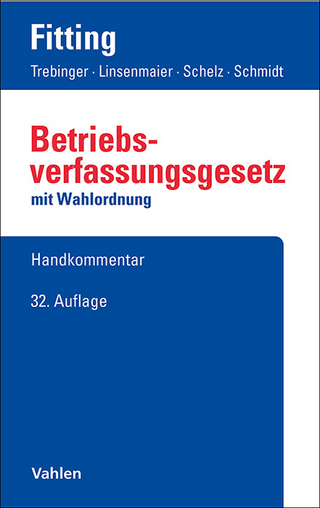
Aggrieved Labor Strikes Back
Inter-sectoral Labor Mobility, Conditionality, and Unrest under IMF Programs
Seiten
2024
Cambridge University Press (Verlag)
978-1-009-45576-3 (ISBN)
Cambridge University Press (Verlag)
978-1-009-45576-3 (ISBN)
This Element argues that extensive labor market reform conditions in an immobile labor market generate strong opposition to programs. The author tests this theory in a global sample and explores the causal mechanism in four case studies on Greece, Ireland, Latvia, and Portugal.
Why do we see large-scale labor protests and strikes under some IMF programs such as in Greece in 2010 and not in others such as in Ireland in the same year? This Element argues that extensive labor market reform conditions in an immobile labor market generate strong opposition to programs. Labor market reform conditions that decentralize and open up an immobile labor market cause workers either to lose in terms of rights and benefits, while being stuck in the same job or to fall into a less protected sector with fewer benefits. Conversely, in more mobile labor markets, wage and benefit differentials are low, and movement across sectors is easier. In such markets, labor groups do not mobilize to the same extent to block programs. The author tests this theory in a global sample and explores the causal mechanism in four case studies on Greece, Ireland, Latvia, and Portugal.
Why do we see large-scale labor protests and strikes under some IMF programs such as in Greece in 2010 and not in others such as in Ireland in the same year? This Element argues that extensive labor market reform conditions in an immobile labor market generate strong opposition to programs. Labor market reform conditions that decentralize and open up an immobile labor market cause workers either to lose in terms of rights and benefits, while being stuck in the same job or to fall into a less protected sector with fewer benefits. Conversely, in more mobile labor markets, wage and benefit differentials are low, and movement across sectors is easier. In such markets, labor groups do not mobilize to the same extent to block programs. The author tests this theory in a global sample and explores the causal mechanism in four case studies on Greece, Ireland, Latvia, and Portugal.
1. Introduction; 2. Unrest under IMF Programs: existing explanations; 3. Labor mobility and adjustment: Material loss, risks, and unrest under imf programs; 4. Quantitative empirical evidence; 5. European borrowers of the fund: mobility, conditionality, and unrest; 6. Conclusion; 7. Appendix; References.
| Erscheinungsdatum | 27.04.2024 |
|---|---|
| Reihe/Serie | Elements in Contentious Politics |
| Zusatzinfo | Worked examples or Exercises |
| Verlagsort | Cambridge |
| Sprache | englisch |
| Gewicht | 274 g |
| Themenwelt | Recht / Steuern ► Arbeits- / Sozialrecht ► Arbeitsrecht |
| Recht / Steuern ► EU / Internationales Recht | |
| Sozialwissenschaften ► Pädagogik ► Sozialpädagogik | |
| Sozialwissenschaften ► Politik / Verwaltung ► Europäische / Internationale Politik | |
| Sozialwissenschaften ► Soziologie | |
| ISBN-10 | 1-009-45576-1 / 1009455761 |
| ISBN-13 | 978-1-009-45576-3 / 9781009455763 |
| Zustand | Neuware |
| Informationen gemäß Produktsicherheitsverordnung (GPSR) | |
| Haben Sie eine Frage zum Produkt? |
Mehr entdecken
aus dem Bereich
aus dem Bereich
mit Wahlordnung | Handkommentar
Buch | Hardcover (2024)
Franz Vahlen (Verlag)
95,00 €
mit den wichtigsten Bestimmungen zum Arbeitsverhältnis, …
Buch | Softcover (2024)
dtv Verlagsgesellschaft
13,90 €


